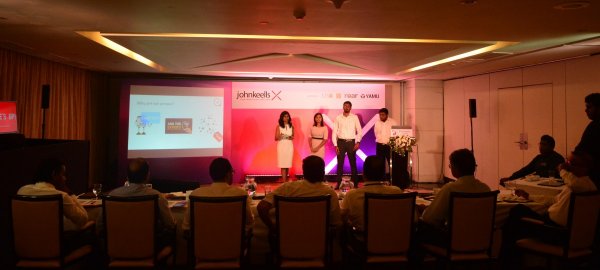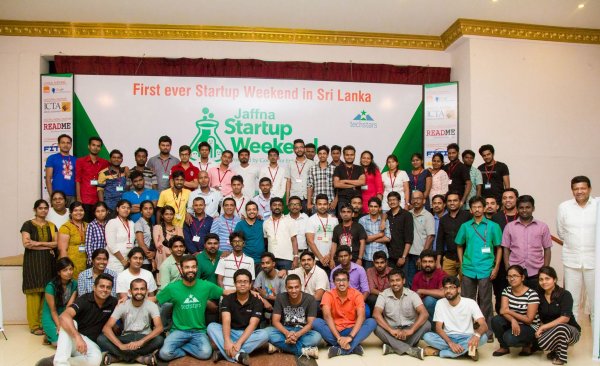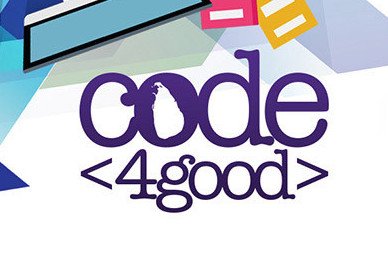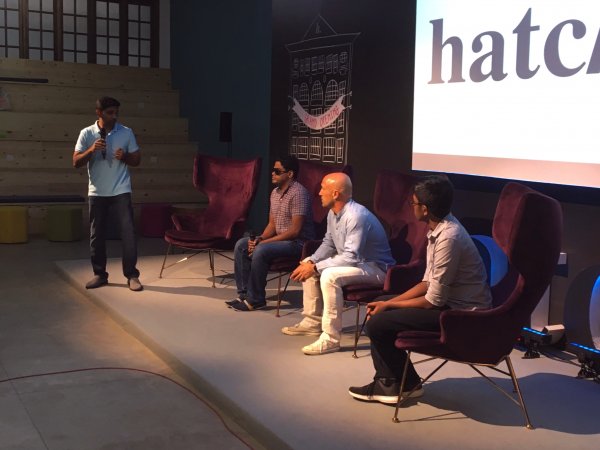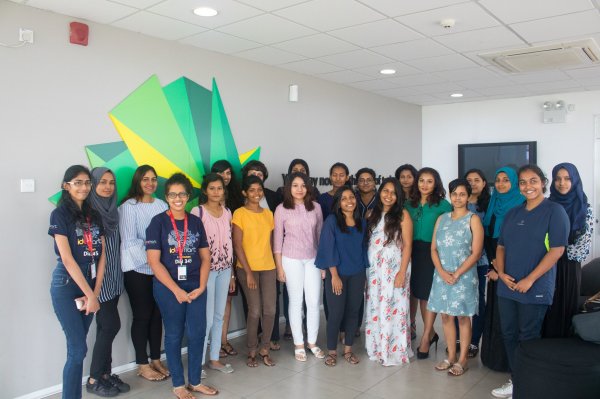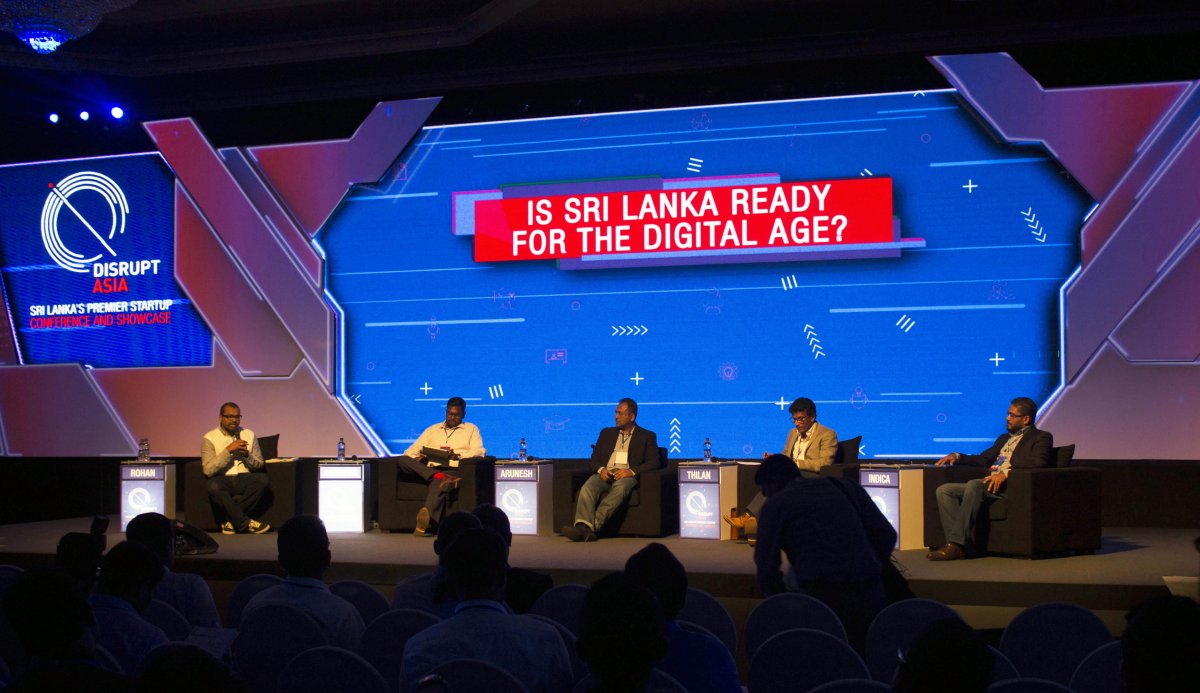
For the second year in a row, Disrupt Asia, Sri Lanka’s largest startup-focused conference, brought together speakers, panelists, investors, entrepreneurs and a host of new startups under one roof. An effort to create a space where attendees can network with startups, founders can meet investors, and CEOs can pick the brains of industry experts, Disrupt Asia was building on the success of its 2016 debut.
The conference, which had an agenda similar to last year’s, featured a main stage for speakers and panel discussions, a second stage with talks on more specialised topics, a workshop area for founders, an investor room that had exclusive discussions for investors, and an exhibition area that showcased a bunch of startups and their products.
Disrupt Asia 2017 was organised by the Information and Communication Technology Agency (ICTA) of Sri Lanka, with the support of the Ministry of Telecommunications and Digital Infrastructure.
The Keynote
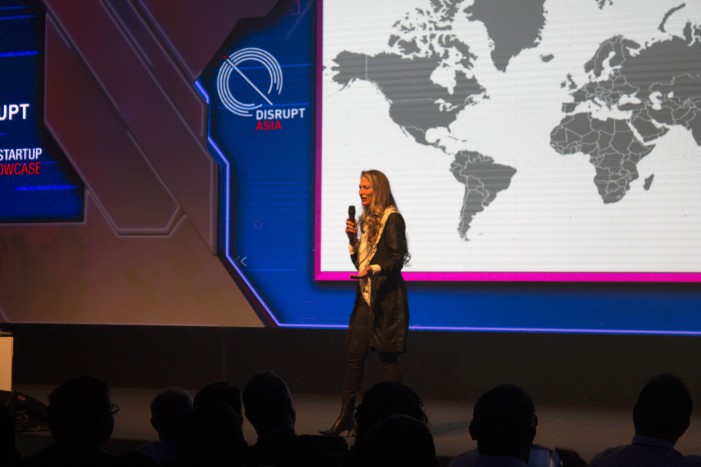
Cheryl Edison, keynote speaker and CEO of Edison International LLC.
Cheryl Edison was the keynote speaker at the event. The dynamic San Francisco resident is a serial entrepreneur and the CEO of Edison International, an innovation acceleration and market strategy consultancy.
Edison stressed the importance of creating spaces where startups can grow, pointing out that Silicon Valley still ranks as the best startup ecosystem in the world. There are three important factors, she said, to growing a good ecosystem—creativity, commerce, and community. She mentioned that at this particular point in time, English is the primary language people need to know in order to be successful in the international tech scene.
The root to innovation begins in education, Edison declared, emphasising on education centred on the academic disciplines of science, technology, engineering and mathematics (STEM). She suggested that incorporating the study and practice of art with the more conventional STEM subjects could lead to creative results.
She also mentioned that during her visit to Sri Lanka, one of the problems she observed was the lack of a payment gateway for entrepreneurs to accept money coming into the country. She added that it is crucial to the economy that businesses are able to accept money for services rendered. Edison further called for the audience to campaign for this, coining the hashtag #LetMeGetPaid to allow people to express their frustration with the lack of payment accepting methods, and push for changes.
The Panels
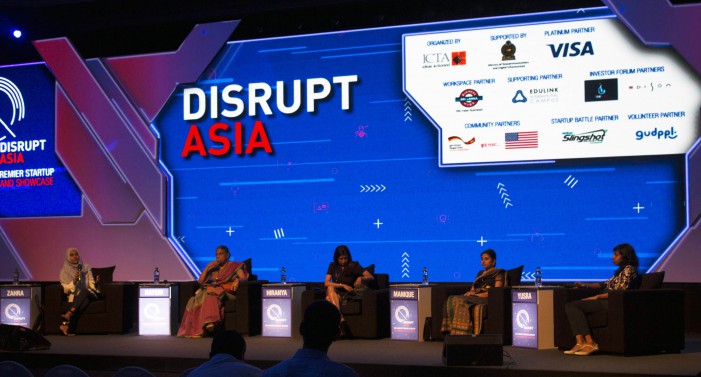
The panel on diversity in Tech.
Also of interest to the attendees were the panels, of which there were several focusing on matters concerning the startup, tech, and finance industries. The panels held discussions on whether Sri Lanka is ready for the digital age, how much diversity there is in the tech industry, and the progress of FinTech in the country. There were also more technical panels looking at the blockchain revolution, digital security for startups and fast scaling of startups.
The panelists themselves were remarkably honest and open about the challenges startups face in Sri Lanka. They spoke about how the majority of the businesses in this economy are still running on legacy systems and have not digitised their operations to meet contemporary standards. The panelists also mentioned that the country needs a vision that “transcends political tenure”, so that progress persists and does not stall every time there is a change in the political situation of the country. Part of the conversation revolved around the Colombo International Financial City, and how it will serve as a sandbox to test new economic ideas.
The reason behind some of Sri Lanka’s restrictive policies, some panelists felt, was the country’s debt issues. The fear of opening up and allowing digital commerce is driven by national debt. It is also the same reason telecommunications are being taxed so heavily. However, these policies just slow the digitisation of the country. The traditional thinking of banks and governments are at odds with the rate of progress of technology, the panelists remarked. The FinTech panel was of the opinion that banks need to start behaving like startups, when it comes to embracing innovation. They observed that Visa, a multinational payments technology company, is preparing itself for a time when it will be no longer based on the use of plastic, such as credit and debit cards. It is also keeping an eye on blockchain and cryptocurrency, which have the potential to disrupt markets.
The diversity panel highlighted that while technology is progressing, the industry needs to be aware of the people in it, and thus make an effort to move towards flexible working hours and inclusivity, while breaking away from the rigidity of old industry models. The panelists further added that there is a need for more IT-focused conversation involving women.
The Startups
Those not attending any of the panels or workshops were able to visit the startup exhibition, where several new and established companies were displaying their products.
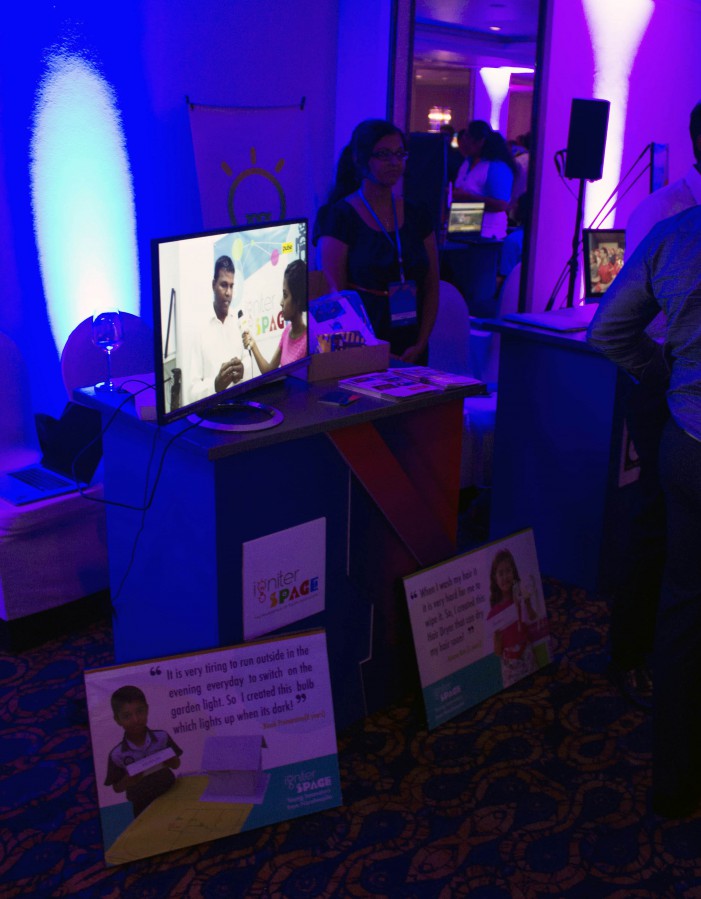
Igniterspace is a makerspace for kids.
There were nearly forty companies focusing on products like knowledge management systems for enterprises, mobile payment systems, space rental platforms, online grocery stores, SaaS products, makerspaces, and health tech startups. There was even a bluetooth-connected cricket bat. What was missing, however, were virtual reality, gaming, and IOT startups, which seemed to be all the rage last year.
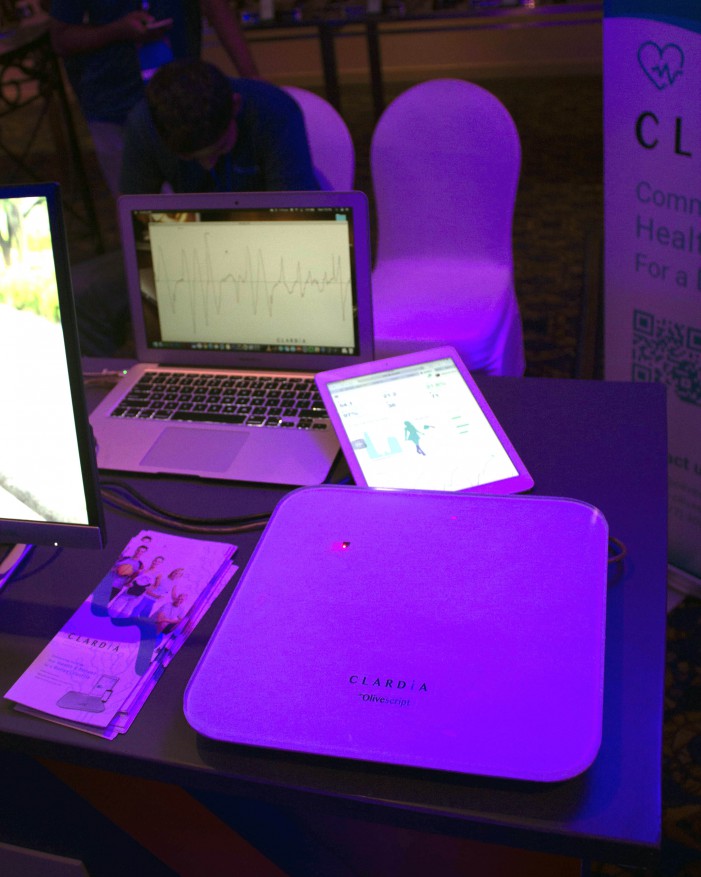
Olivescript’s device measures your overall health when you stand on top of it.
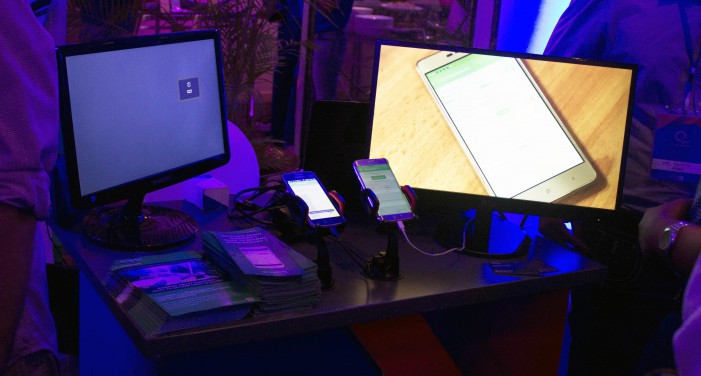
Myglukose is one component of a larger ecosystem to monitor all your health data.
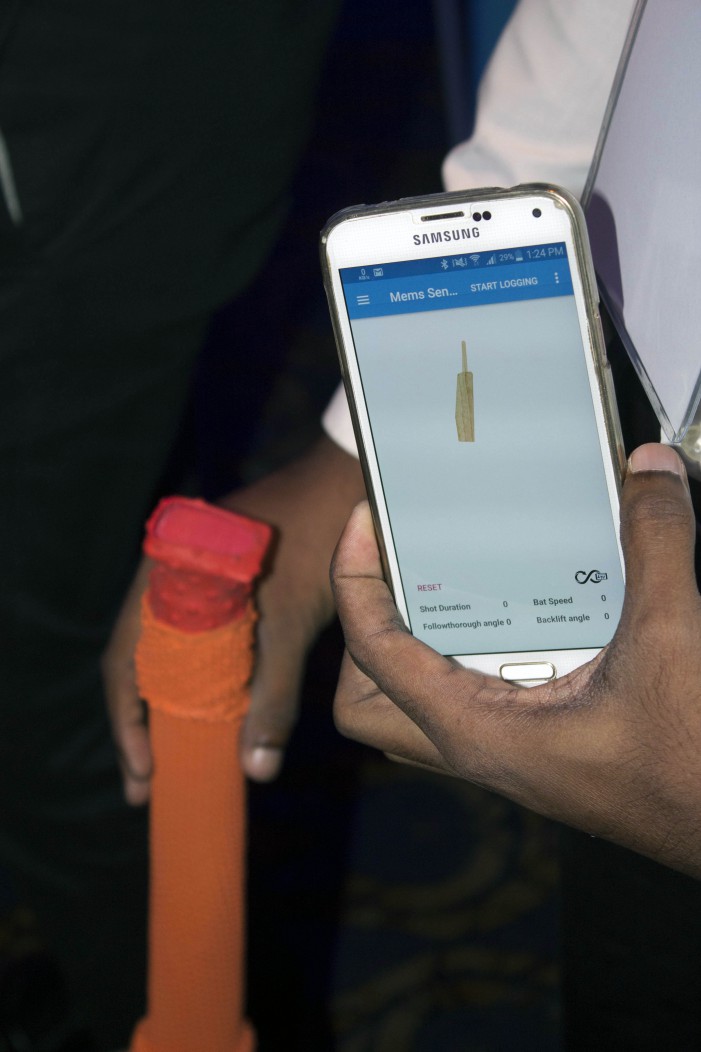
Hybriteq measures every stroke you make with a cricket bat, and eventually will allow you to compare it with those of your favourite cricket players.
A Chance To Network
There were close to 400 people attending the startup conference, but perhaps the biggest advantage the conference afforded, was the chance to network. Startups got to meet investors, founders got advice from panelists, and young entrepreneurs spoke with industry veterans. The startups got to practise their pitching at the Hemas Slingshot Startup Battle. The winners of the event, Olivescript, walked away with prizes that included cash and workspace for 6 months.
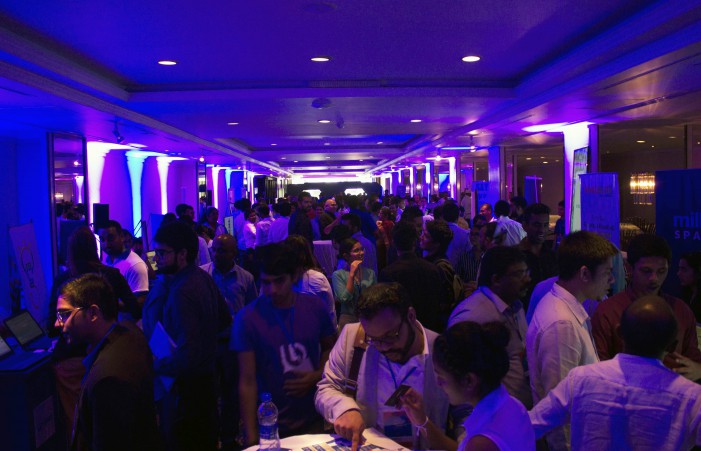
A lot of networking happened at the exhibition section of the conference.
While the startup culture in Sri Lanka is growing, the ecosystem is still a small one. Bringing everyone together under one roof helps create community, lets people see that they are not alone, and creates exposure for ideas that might not receive attention otherwise. The prospect of seeing new companies arise from ventures such as this, is an exciting one.


